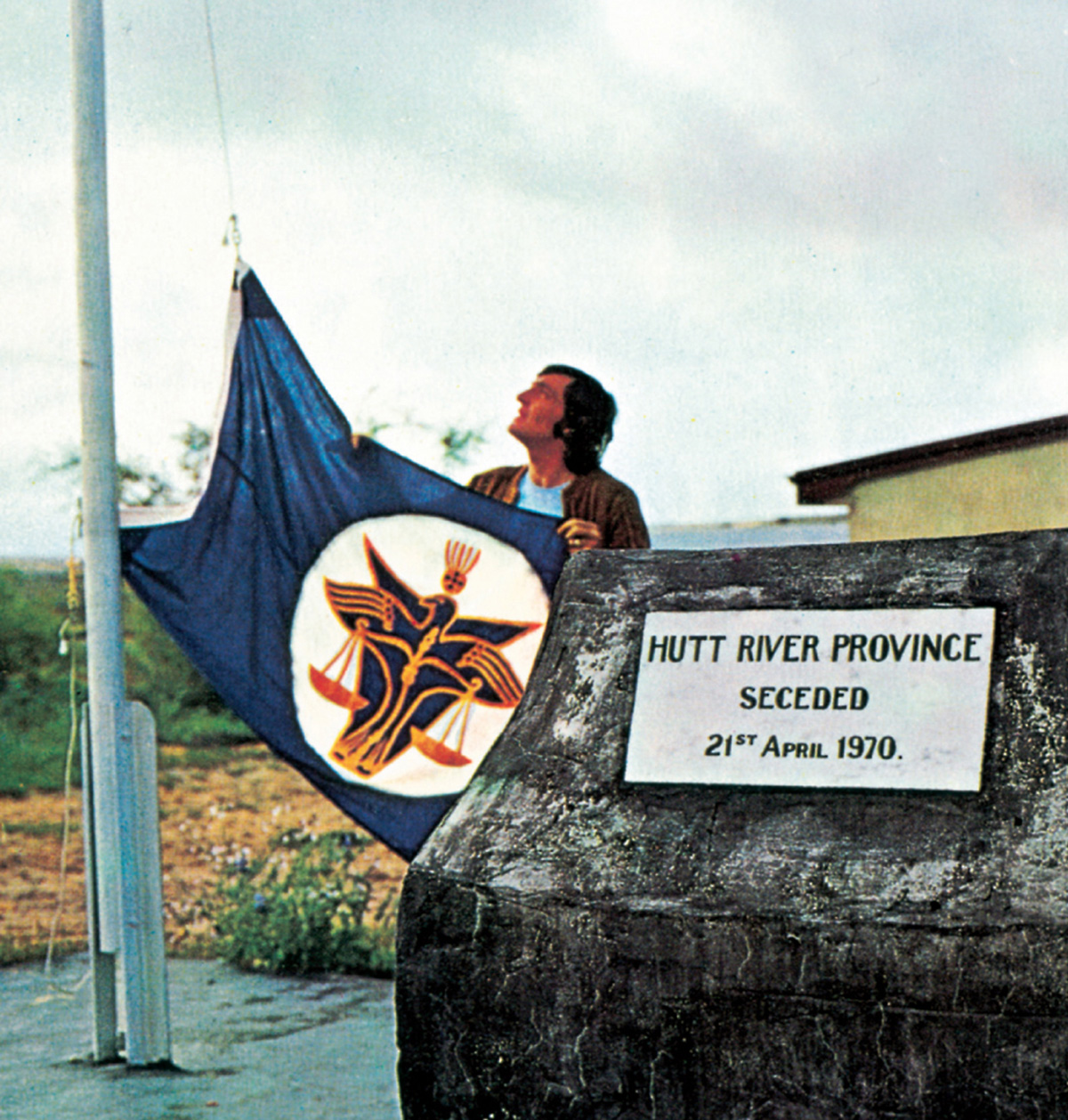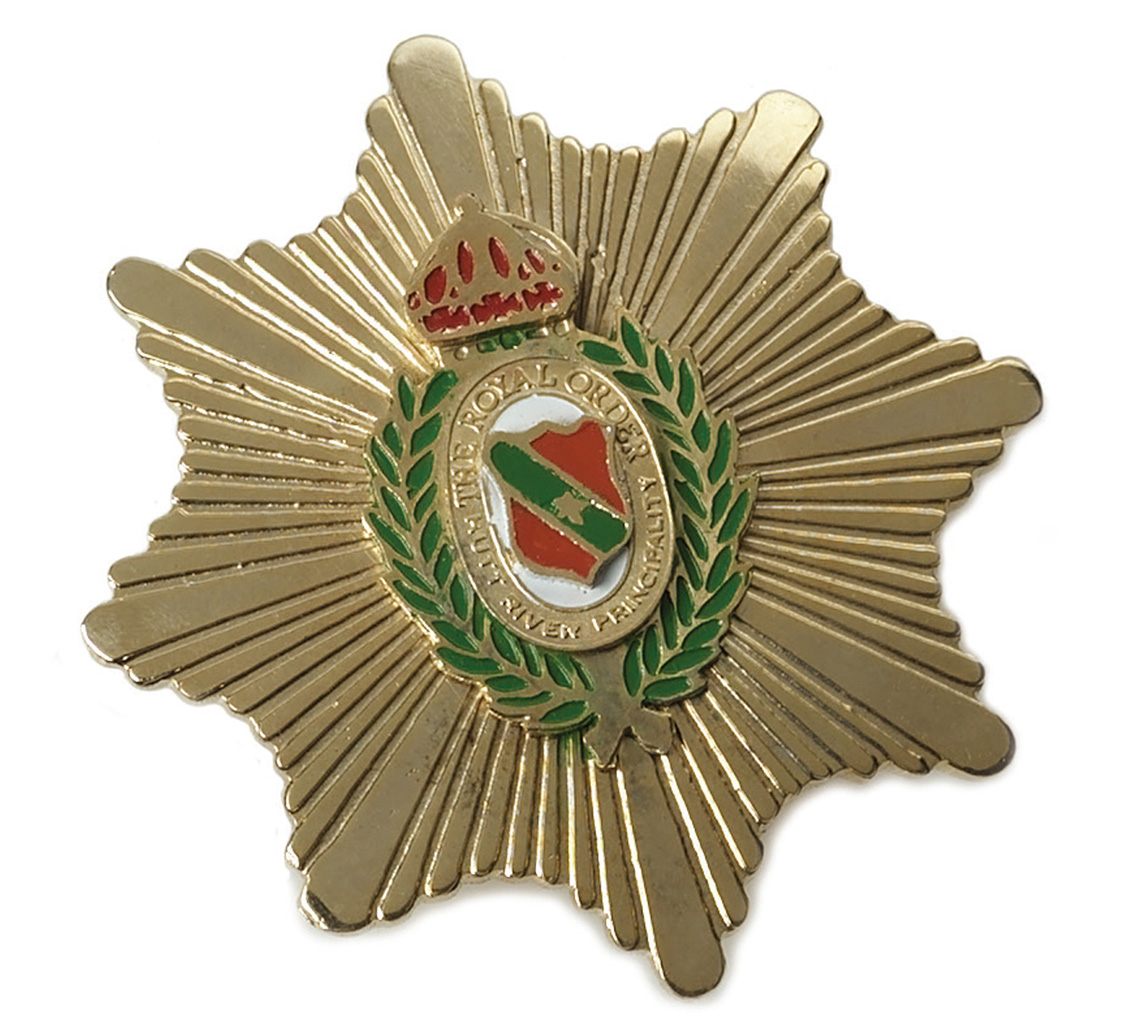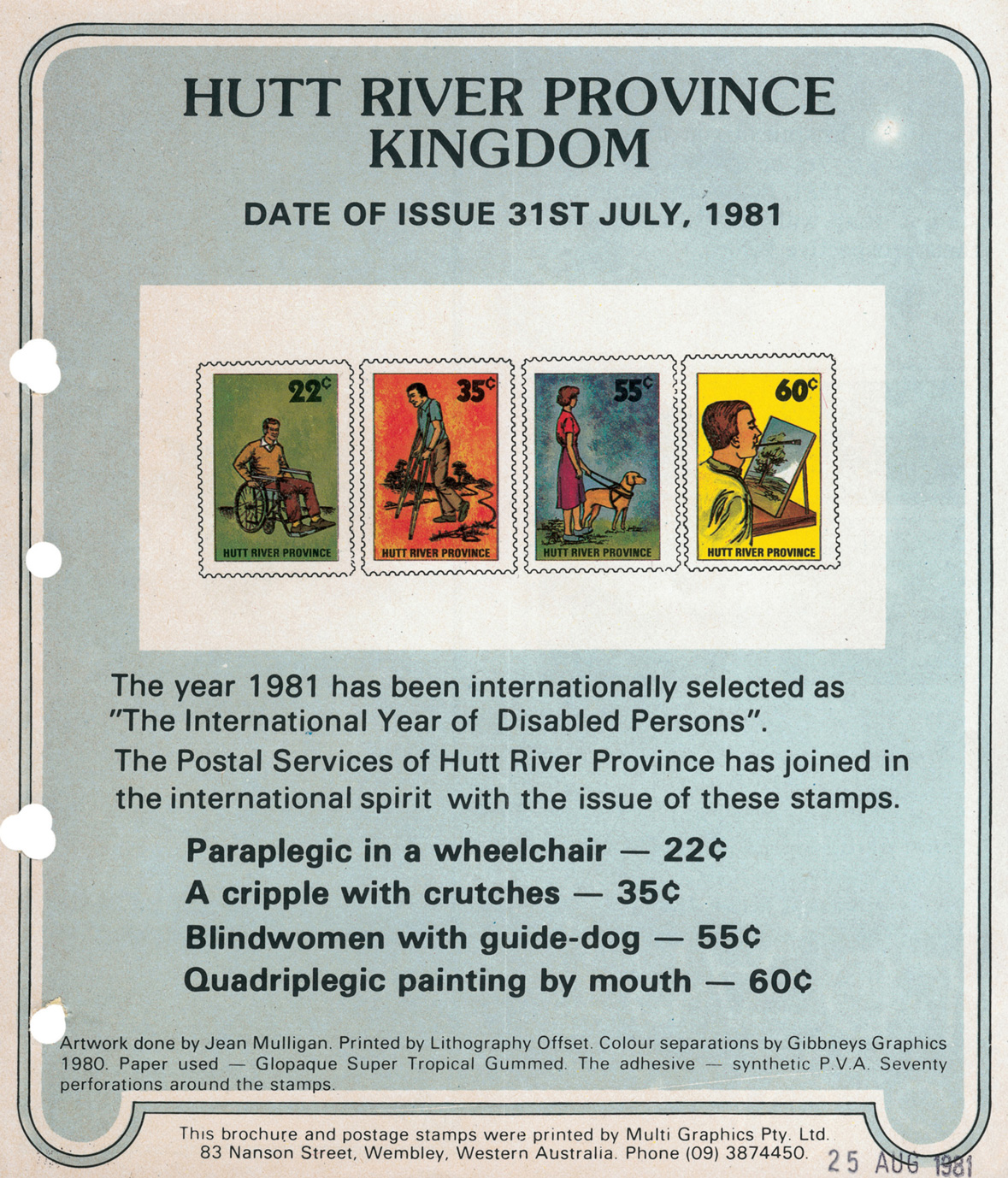Hutt River Province Principality
Against the grain

A micronation occupying some seventy-five square miles of pasture and farmland roughly twenty miles inland from the Indian Ocean in Western Australia, Hutt River Province Principality was founded in 1970 when, in response to agricultural quotas imposed on his family’s lands by the state government, wheat farmer Leonard George Casley seceded from Australia.
The Hutt River Province secession grew out of a series of legal maneuvers seeking to overturn the quota ruling, which demanded a huge reduction in crop production, along with a commensurate loss of revenue, from the 18,500 acres of land Casley farmed. When Sir Douglas Kendrew, then-Governor of Western Australia, refused to increase the farming quota, Casley applied for independence, claiming that the legal principle of “unjust enrichment” demanded some form of compensation, in this case, territorial in nature. The Parliament of Western Australia responded by introducing a bill that would have allowed the government to seize Casley’s land—in order to place itself outside the jurisdiction of the state, Casley (along with his wife, Shirley, and seven children) delivered formal notification on 21 April 1970 of his intention to secede from the state of Western Australia, the federal government of Australia, and the commonwealth of Great Britain. Debate over the status of Casley’s new country reached Australian Governor General Sir Paul Hasluck, the Commonwealth’s chief administrator on the continent, who ruled that he had no constitutional authority to intervene.

There were other attempts to challenge the secession—indeed, the organization of the province as a principality was a strategy based on a British law that excepted individuals “assisting a defacto [sic] Prince attain his office” from charges of treason. But as time went on, the reign of Price Leonard and Princess Shirley became conventionally accepted. Over the course of the next three decades, the few dozen citizens of Hutt River Province (many of them the Casleys’ children and grandchildren) developed an economy that comprised wheat, lupin, and barley cultivation, the raising of lamb and sheep for meat and wool, and the export of fresh and dried wildflowers. In April of this year, the Principality held a series of public celebrations to celebrate its 35th Anniversary (as well as the Prince and Princess’s 58th wedding anniversary) featuring an exhibition of Chinese art, a dinner dance, and a “sports challenge” sponsored by The Hutt River Petanque Federation, as well as a ceremony of Royal Investitures and Awards presided over by Prince Leonard himself.

Spotted an error? Email us at corrections at cabinetmagazine dot org.
If you’ve enjoyed the free articles that we offer on our site, please consider subscribing to our nonprofit magazine. You get twelve online issues and unlimited access to all our archives.